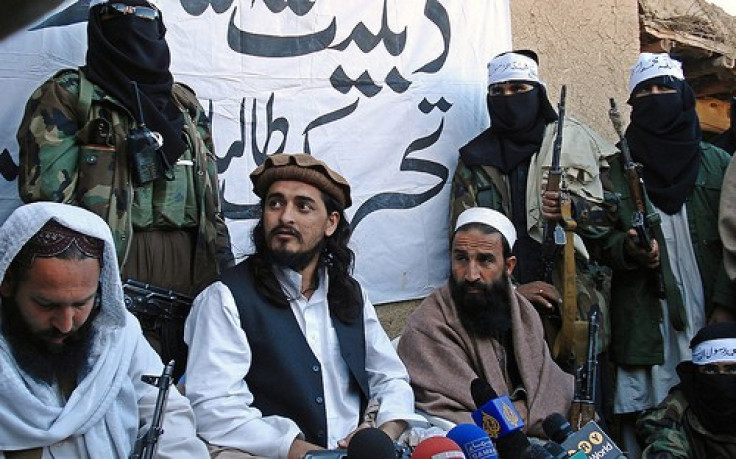We Have 500 Female Suicide Bombers Ready To Strike: Pakistan Taliban

Maulana Abdul Aziz, a senior official of the outlawed Tehreek-i-Taliban Pakistan, claims that his militant organization has a pool of some 500 women suicide bombers available at any time to carry out attacks against the state.
In an interview with Bloomberg News, Aziz – one of three Taliban figures who were seeking to negotiate with the Islamabad government of Prime Minister Nawaz Sharif – said the TTP feels no urgency to reach a peace deal. “The Taliban are in no hurry,” Aziz said from his seminary in Islamabad, where some 1,300 girls and women are enrolled to study. “They say they [Taliban] are not worried about it. They have been in a state of war for the past 10 years. You should know that at the moment they have at least 400 to 500 female suicide bombers in Waziristan and other tribal areas. The government should realize the situation and their demands.”
In addition, Aziz boasted that the TTP is better prepared to fight than the state and is ready for a long war. “If the military has weapons and air power, they [Taliban] have suicide bombers,” he said. “You cannot match them. Suicide bombers even destroyed the power of America in Afghanistan.”
Aziz stressed that the TTP's principal goal is to establish Islamic Shariah law in Pakistan, and the fight against U.S. and other Western troops in neighboring Afghanistan is basically a sideshow. “[Taliban] are fighting for the implementation of Shariah,” Aziz said. “It’s the law of nature that when people don’t get their rights, they pick up arms.”
Some scoff at Aziz's claims. Muhammad Amir Rana, director of the Islamabad-based Pakistan Institute for Peace Studies, told Bloomberg that 400 to 500 female suicide bombers “is a very exaggerated figure.” “The Taliban are way ahead in the propaganda war, and they have given a tough time to the state,” Rana said. “Female suicide bombers have been used, but not too many.”
Pakistan's Geo News reports that the TTP has used suicide bombers frequently in its campaign against the state and against targeted religious minorities – including an attack upon a Christian church in Peshawar last September that killed 80 people. Sharif called for renewed peace talks with the group in the wake of an intensified round of attacks – including a massacre of soldiers that led to demands for military strikes. Since 2001, an estimated 40,000 Pakistanis have been killed in militant violence.
Aziz himself temporarily withdrew from the committee chosen to negotiate with the government, saying he would accede to state demands that any such talks occur within the purview of the Constitution. Aziz gained everlasting fame and notoriety in Pakistan in 2007 when then-President Pervez Musharraf ordered troops to storm the Lal Masjid (Red Mosque) of Islamabad to end a siege by pro-Taliban clerics who demanded the imposition of Shariah law in the capital. That operation killed more than 100 people, including Aziz’s brother. Aziz was imprisoned for two years after the Red Mosque raid.
© Copyright IBTimes 2024. All rights reserved.











